An intrepid guitar researcher has assembled an exhaustive list of 100 alternate tunings – and he's just getting started
Stuck for ideas? Feeling uninspired? Not sure how to relight your six-string spark? George Howlett's comprehensive collection of global altered tunings is sure to help
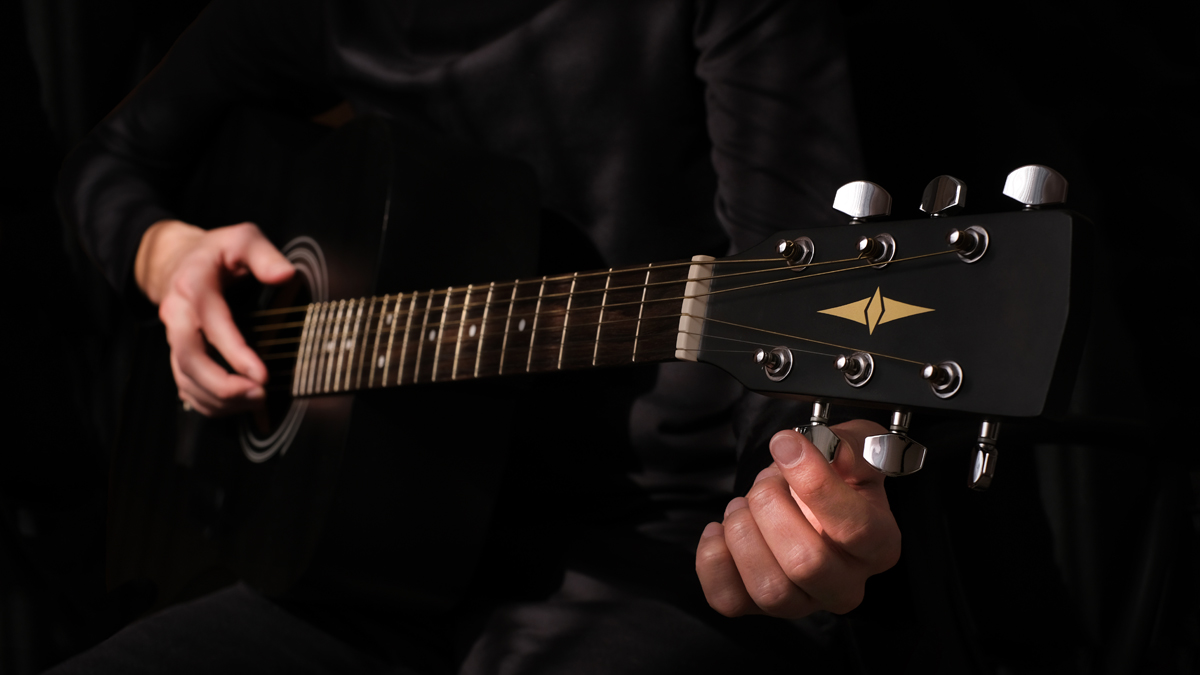
All the latest guitar news, interviews, lessons, reviews, deals and more, direct to your inbox!
You are now subscribed
Your newsletter sign-up was successful
We’ve all dabbled in alternate tunings, but it’s probably fair to say few of us have ventured beyond the most popular and common guitar tunings currently known.
Those tunings would probably include Drop D, DADGAD, any open-chord tuning variant such as Open C and Open E, and – for some more adventurous souls – the DGCGCD Rain Song tuning.
Those are only a few of the many alternate tunings guitarists can use, but if you had to take a wild guess at how many you could actually name altogether, what would you say? 10? 20? More? Less?
Well, lucky for us, someone has compiled arguably the definitive list of alternate guitar tunings, which includes 100 – yes, 100 – totally distinct six-string tunings for you to test out.
The World of Tuning project was completed by George Howlett, who compiled an in-depth – and totally free – database of tunings from around the world in an effort to “explore how we can rethink our peg-twisting rituals”.
The tuning list is as comprehensive as it sounds. In an 11-minute video posted to his YouTube channel, Howlett goes through each and every tuning he’s been able to gather, along with sound clips of open strums and a selection of notes on its history, context and uses.
What’s more, even deeper detail on each tuning can be found over on Howlett’s dedicated Rāga Junglism’s World of Tuning website. This includes further sound clips, examples of when each tuning has been used in the wild and quotes from individuals who have used them.
All the latest guitar news, interviews, lessons, reviews, deals and more, direct to your inbox!
At a glance, there is a huge collection of tunings that many would never have come across before. Niche examples include “Blown a Wish”, “Papa-Papa”, “Magic Farmer”, “Only Shallow” and “Rakotomavo”, among many, many others.
“I’ve always felt that tuning is the most under-explored zone of guitar playing,” Howlett tells Guitar World. “Few other instruments offer such freedom to ‘choose your canvas’ and twirling the pegs is among the most reliable ways to discover fresh melodies, harmonies, and emotional shades.
“Besides, the experience of tuning up is a true guitaristic universal,” he continues, “so I wanted to examine how we can get more out of the process in a broader sense.”
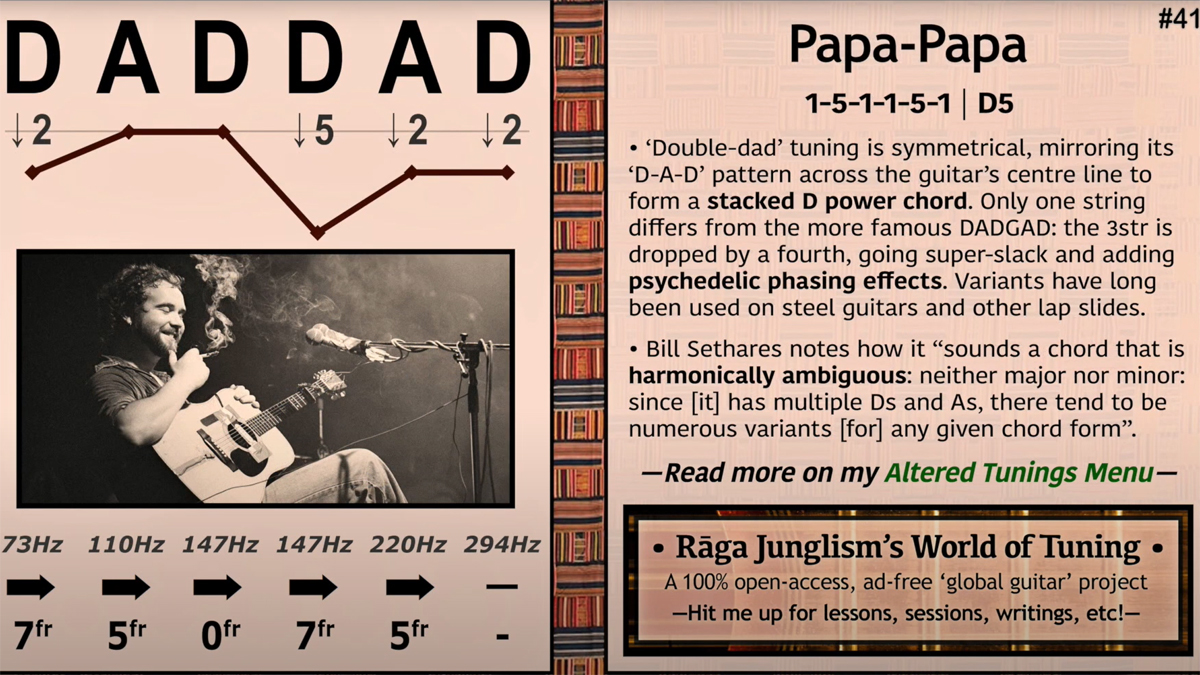
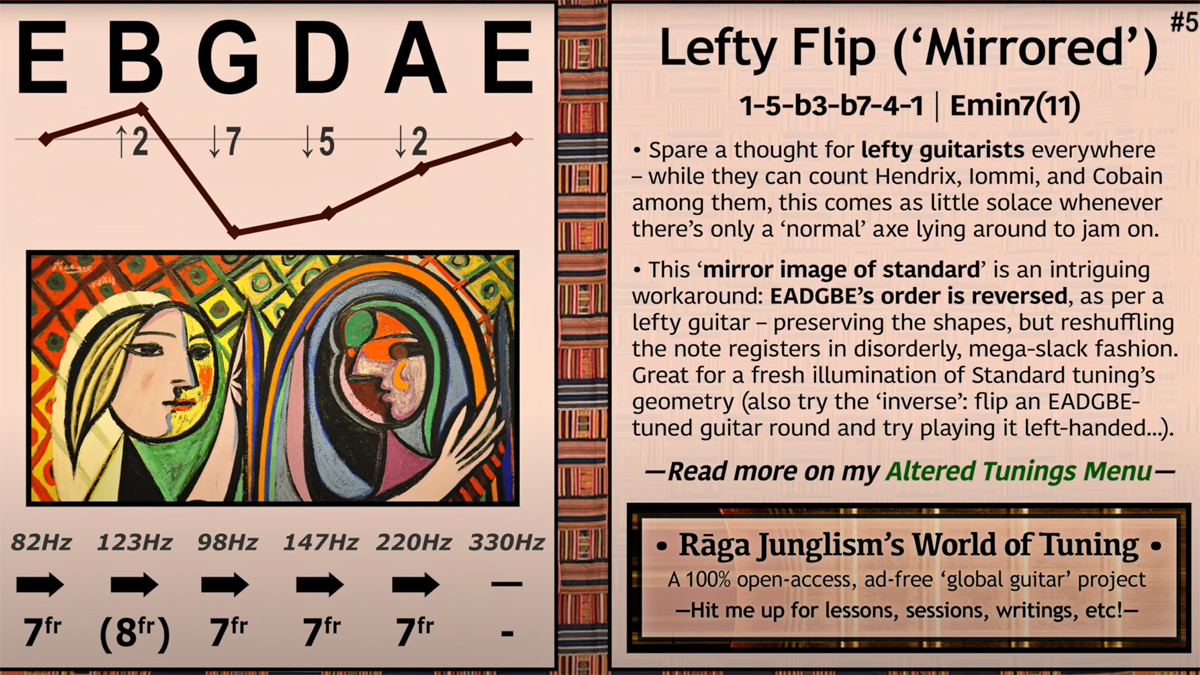
Unsurprisingly, discovering, researching and documenting 100 tunings came with its challenges. As Howlett explains, it was the global tunings from distant locations that contained a lack of English resources that proved to be the toughest to find.
However, it was these very same tunings beyond the familiarity of Western-tuned ears that proved to be the most enlightening and useful ones, some of which coming with unique back stories of undiscovered virtuosos.
“Some of the global tunings were particularly hard to research, with only a scattering of good English-language sources on areas like Papua New Guinea’s amazing ‘stringband’ music,” Howlett reflects. “But it’s worth it for the as-yet-unseen gems. For example, discovering the wild life of Zacharie ‘Jhimmy the Hawaiian’ Elenga, a long-lost virtuoso of 1950s Congo. Expelled from priesthood training, he took to performing flamboyant one-man-band shows around colonial Leopoldville.”
Though the list of 100 seems large, Howlett reveals there were even more he had to leave on the cutting room floor: “In a way, it was harder to decide what to leave out. I have notes on 200-300 more tunings from around the world, and will definitely be adding more in the future.”
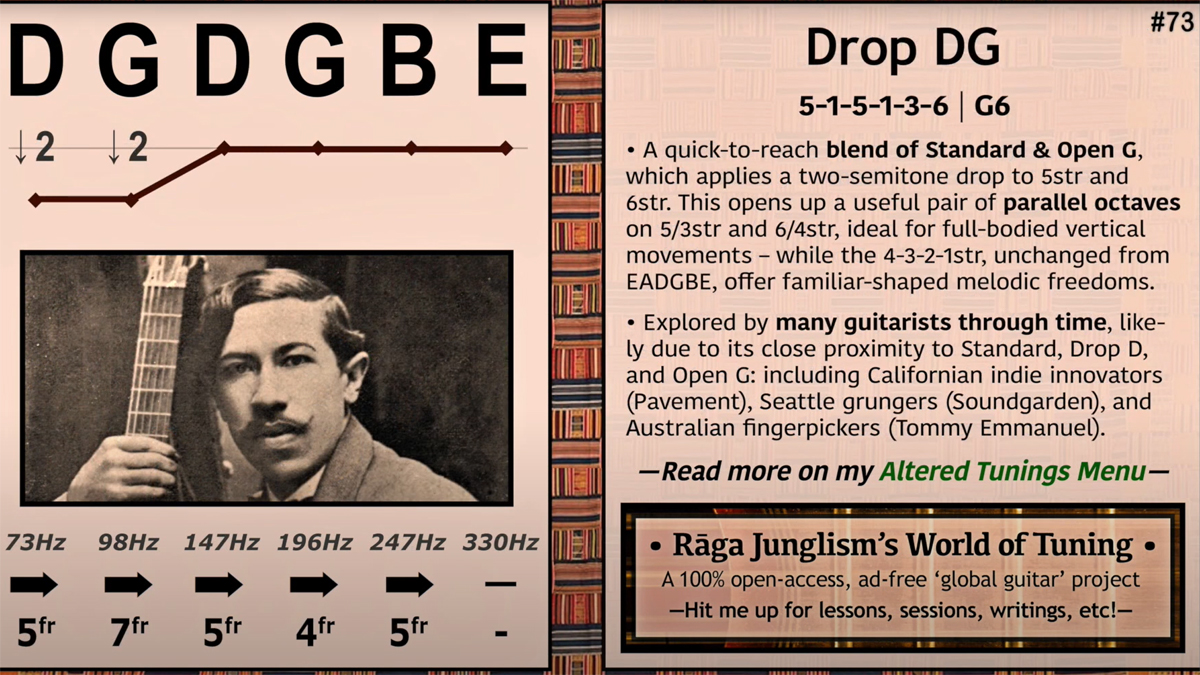
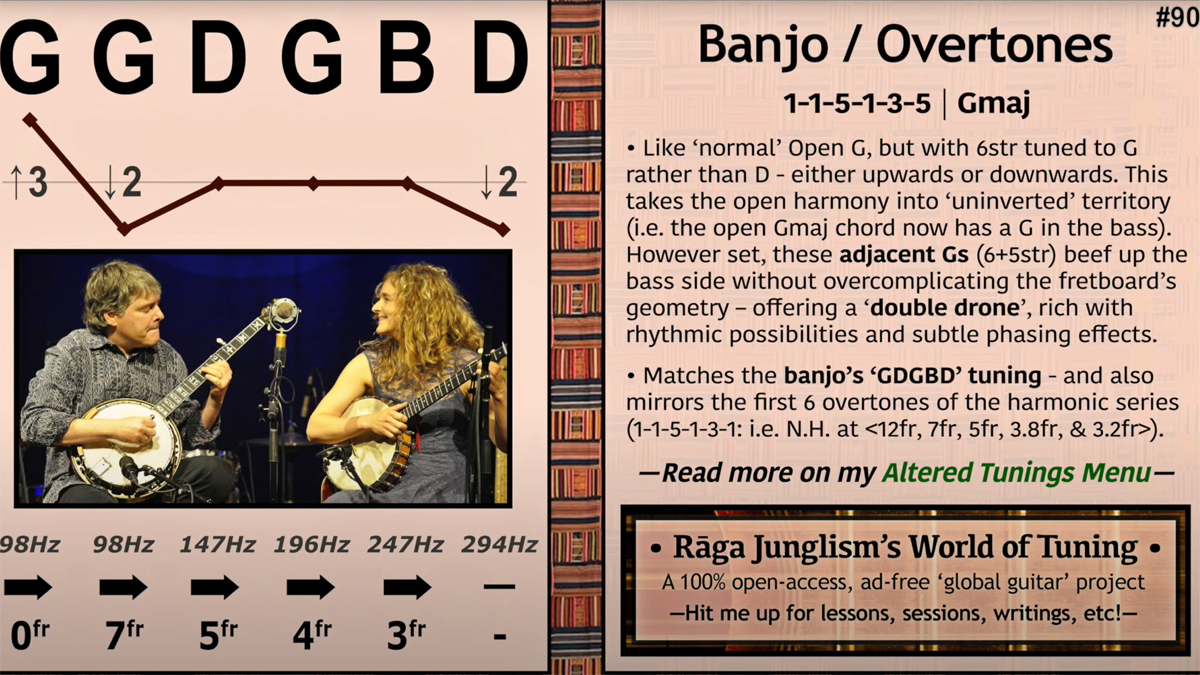
As for what the weirdest and most under-rated tunings are from his mega list, Howlett recommends Michael Hedges’ “Funky Avocado” (BADGAD) – which is essentially drop B DADGAD – and “Zigzag Thirds”, which was devised by a Greek mathematician to include natural and flat tones.
His favorite, though, is Drop A (AADGBE): “I absolutely love Drop A on my steel-string acoustic: wind the sixth string right down to a low A, allowing you to access most of the bass register, and also conjuring up some wonderfully percussive timbres and grooves.”
However, Howlett insists his list doesn’t bring about an end to the world of alternate tuning research: “Above all, I’d say why not just twist your strings to something completely new, following the instinct of your ears? This way, it’s near-impossible not to stumble on new ways of playing…”
To browse the whole list of alternate tunings, head over to the Rāga Junglism website.

Matt is the GuitarWorld.com News Editor, and has been writing and editing for the site for five years. He has a Masters in the guitar, a degree in history, and has spent the last 19 years playing everything from blues and jazz to indie and pop. During his GW career, he’s interviewed Peter Frampton, Zakk Wylde, Tosin Abasi, Matteo Mancuso and more, and has profiled the CEOs of Guitar Center and Fender.
When he’s not combining his passion for writing and music during his day job, Matt performs with indie rock duo Esme Emerson, and has previously opened for the likes of Ed Sheeran, Keane, Japanese House and Good Neighbours.
